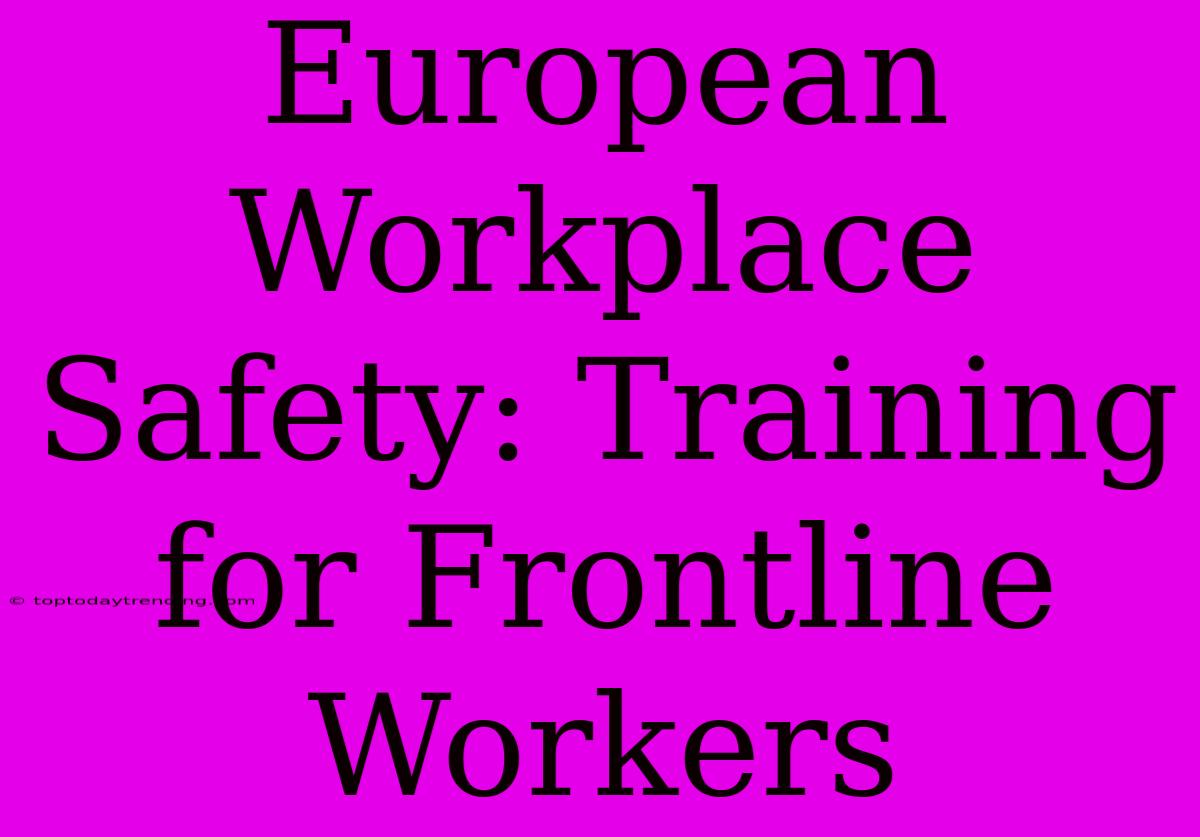European Workplace Safety: Training for Frontline Workers
The European Union has a strong commitment to workplace safety, reflected in its comprehensive legislation and regulations. These aim to protect workers from hazards and promote a safe and healthy work environment. Frontline workers, who are often in direct contact with potential risks, play a crucial role in achieving this goal. Investing in comprehensive training for frontline workers is essential to bolster workplace safety and ensure a robust safety culture across all European workplaces.
The Importance of Training for Frontline Workers
Frontline workers are the first point of contact in any workplace, and their well-being is paramount. Providing them with proper training equips them with the knowledge and skills necessary to:
- Identify and assess workplace hazards: This includes recognizing potential risks, understanding the nature of hazards, and knowing how to avoid them.
- Implement safe work practices: Training can teach workers the correct procedures for operating machinery, handling hazardous materials, and working in potentially dangerous environments.
- Respond effectively to emergencies: Frontline workers should be trained in first aid, CPR, and fire safety procedures to ensure they can act swiftly and appropriately in case of an emergency.
- Contribute to a proactive safety culture: Empowered with knowledge and skills, frontline workers can become active participants in promoting a culture of safety, reporting hazards, and suggesting improvements to safety procedures.
Essential Elements of Workplace Safety Training
Effective training for frontline workers should include the following elements:
- Hazard identification and risk assessment: Workers should be trained to recognize and understand potential hazards in their workplace, including chemical exposures, physical hazards, and ergonomic risks.
- Personal Protective Equipment (PPE): Training should cover the proper selection, use, and maintenance of PPE, ensuring workers understand the importance of wearing appropriate gear for specific tasks.
- Safe work procedures: Workers should be trained in the correct procedures for performing their tasks safely, minimizing risks, and ensuring compliance with all safety regulations.
- Emergency preparedness: Training should cover emergency response procedures, including evacuation plans, fire safety protocols, and first aid.
- Communication and reporting: Workers should be empowered to communicate safety concerns and report any incidents or near misses to their supervisors.
The Impact of Effective Workplace Safety Training
Investing in effective training for frontline workers yields a significant return on investment. It leads to:
- Reduced workplace accidents and injuries: Properly trained workers are better equipped to avoid hazards and respond effectively to emergencies, ultimately reducing the incidence of workplace accidents and injuries.
- Improved worker morale and productivity: Workers who feel safe and confident in their working environment are more motivated and engaged, leading to improved productivity and overall job satisfaction.
- Enhanced workplace safety culture: Training empowers workers to actively participate in promoting a positive safety culture, leading to increased awareness, improved reporting, and continuous improvement.
- Compliance with regulations: Training ensures that workers understand and comply with all relevant safety regulations, minimizing legal risks for the employer.
In conclusion, investing in workplace safety training for frontline workers is crucial for building a strong safety culture and achieving a safe and healthy work environment in European workplaces. By equipping workers with the knowledge and skills they need, businesses can safeguard their workforce, enhance productivity, and ensure compliance with all legal requirements.

